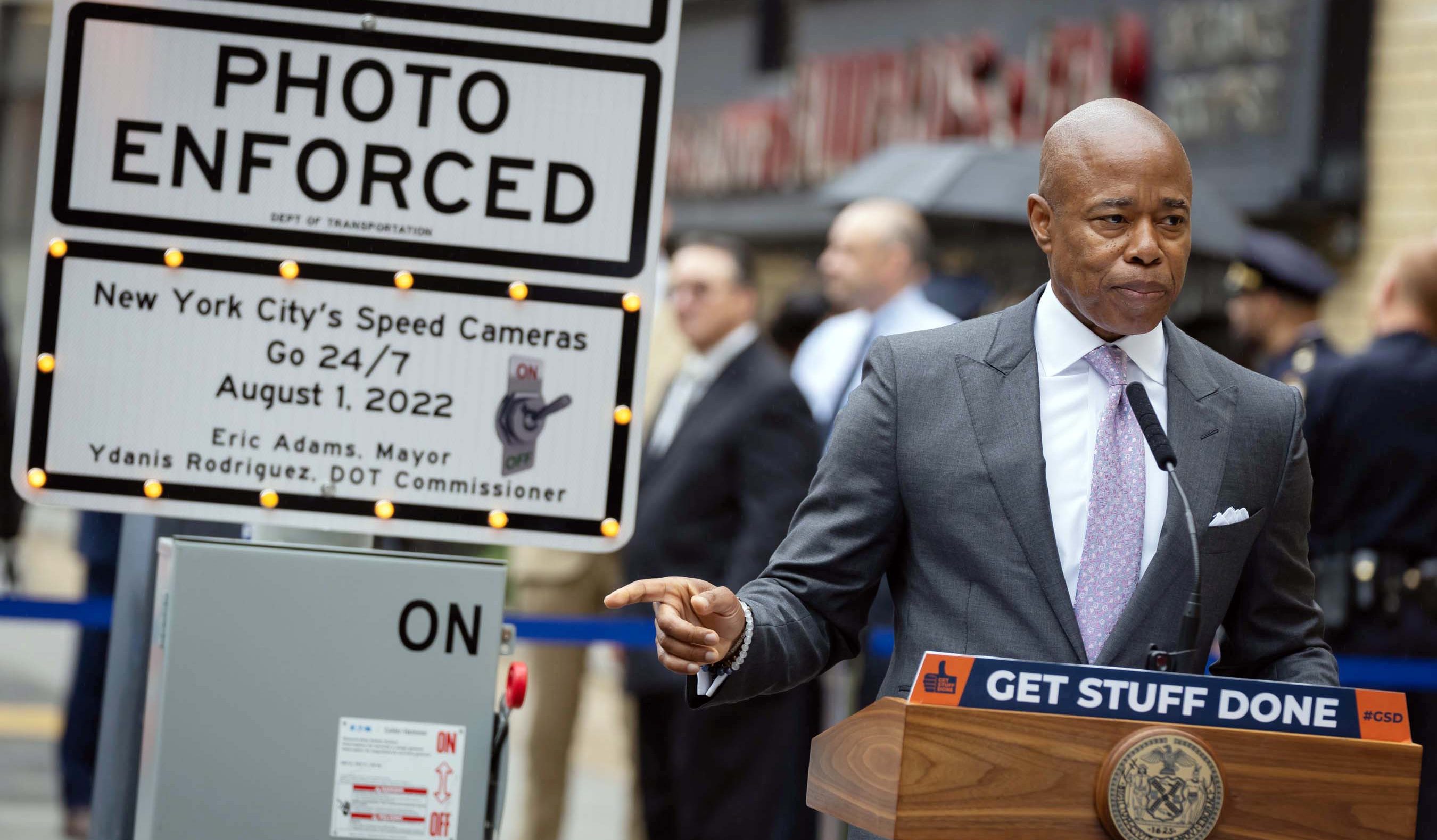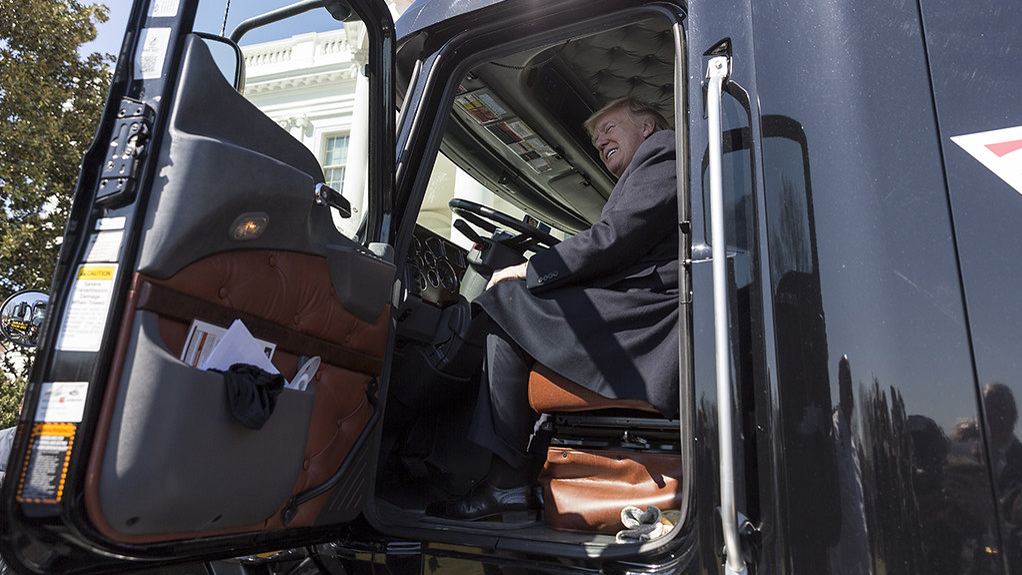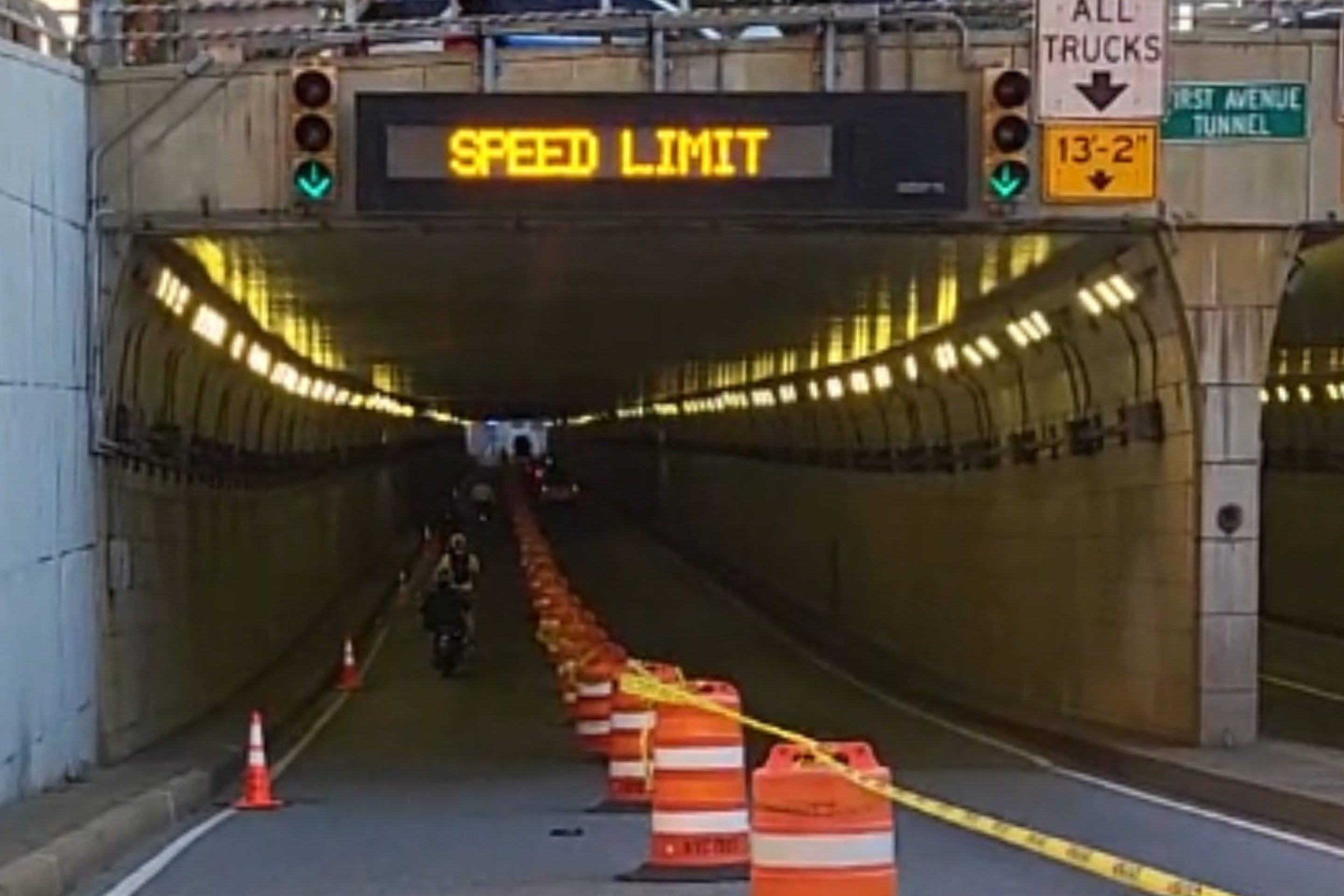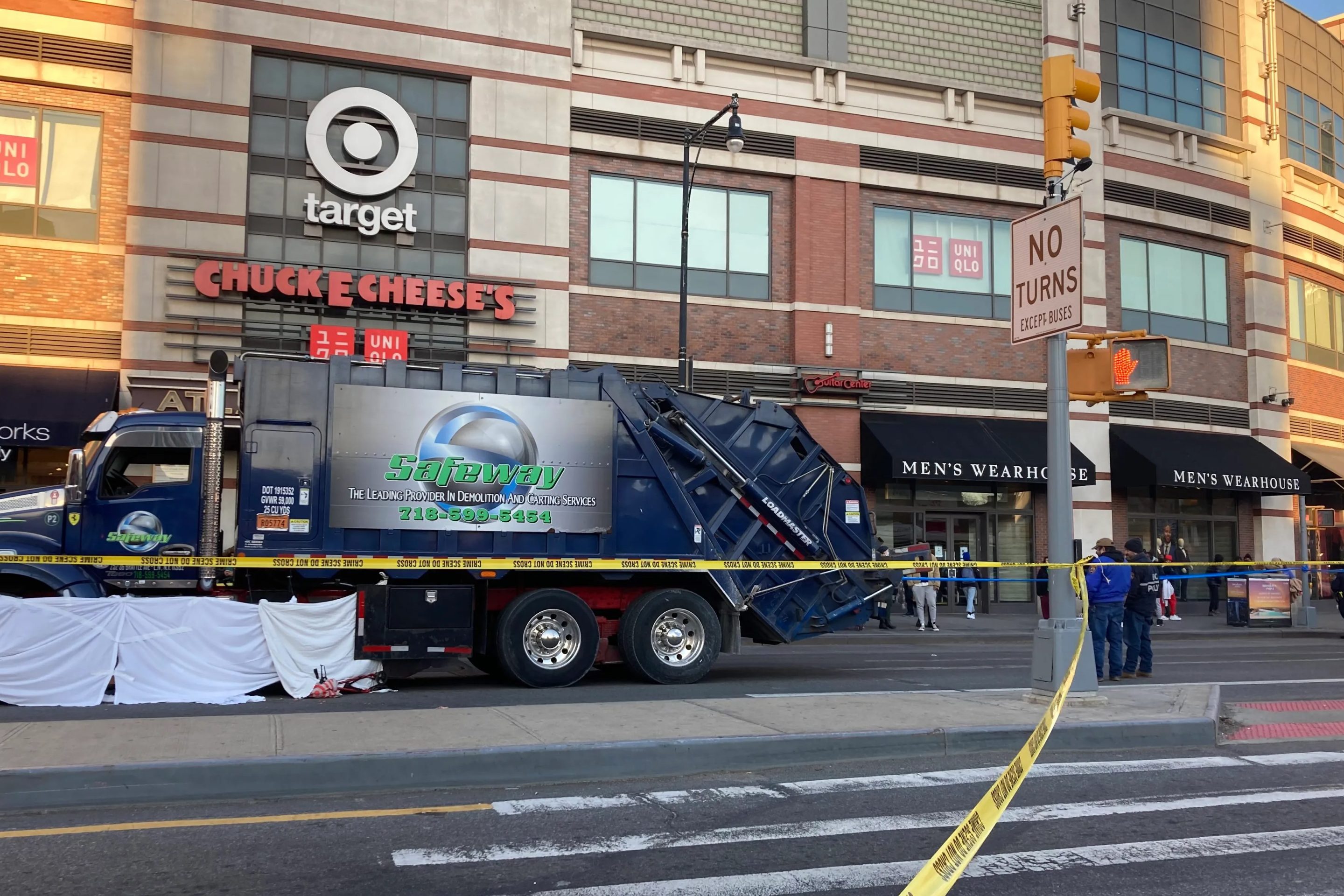Ask the Candidates: Which District Attorney Will Make Queens Streets Safer?
9:40 AM EDT on June 13, 2019

Candidates for Queens District Attorney talking about street safety are (clockwise from top left) Rory Lancman, Jose Nieves, Melinda Katz and Tiffany Caban.
One candidate will prioritize traffic violence from the moment he steps into office. Another says federal forfeiture money should be used for street safety improvements. And a third says he would emphasize working with other government agencies to improve street safety, despite an inconsistent record on livable streets issues in the past. This is the state of play on one of the most important safety issues just two weeks before Queens voters have a real chance to pick a new district attorney for the first time in 28 years.
Mostly, the seven Democrats vying for the Democratic nomination on June 25 have been focusing on issues that have long defined the notion of "law enforcement": prosecution rates, incarceration rates, conviction rates. But there hasn’t been much talk about how the office will move on from former DA Richard Brown’s legacy of brushing off traffic violence and bring a more modern approach to the issue of safe streets.
None of the candidates list traffic violence among their main issues on their websites, and the issue has taken a back seat to the question of how a district attorney’s office should function in the 21st century — just as the Manhattan and Brooklyn DA’s offices have grappled with the question. But Streetsblog asked the question — and at least some candidates did see the importance of having a district attorney that confronts reckless driving, studying traffic collision data and lobbying for redesigns that put pedestrians and cyclists first.
“The district attorney needs to view themselves as the chief public safety officer of the borough,” City Council Member Rory Lancman told Streetsblog. “And if you have a dangerous intersection, or a dangerous streetscape and it's causing injury and damage to property, it is the district attorney's responsibility to point that out to prod other government agencies to act and to take the lead on turning an unsafe location into a safe one. And that is true, even if none of that involves prosecuting people."
Tiffany Cabán, a public defender who is running an insurgent campaign that is not taking corporate donations, said the priority needs to be on changing the culture of the DA's office.
“In any place of employment, you have metrics that you have to hit — but our [current] district attorney has decided that those metrics are going to be convictions and sentences and the number of people you throw in jail,” said Cabán, who’s snagged endorsements from the ascendant Queens chapter of the Democratic Socialists of America, Comptroller Scott Stringer, safe streets champion Council Member Brad Lander and Philadelphia District Attorney Larry Krasner. She specifically criticized the district attorney's office's focus on what she called crimes of poverty, like arrests for driving with a suspended license versus trying to tackle bad actors on a corporate level or truly reckless drivers.
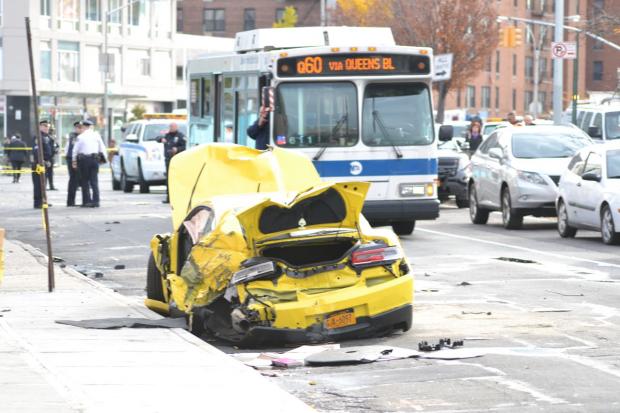
But the boldest public safety initiative comes from Jose Nieves, a former prosecutor with the Brooklyn DA’s office and former law enforcement officer investigator with the state Attorney General’s office, who said “the first thing” he would do as Queens District Attorney is create and staff up a Vehicular Crimes Unit. The establishment of that unit would bring Queens up to speed with fellow boroughs Manhattan and Brooklyn (the first borough in the city to create such a unit). The unit would focus on working with the NYPD to investigate crashes that cause injuries or death.
“The first and foremost duty of the district attorney is public safety,” Nieves told Streetsblog. “And when you have a situation where crimes are being committed without any accountability, your own residents are being injured and killed, there has been no real investigation, no accountability and families and victims and never see a day court, that's a problem. That’s not promoting public safety. So I think, because the discussion and political dialogue has moved away from public safety, we've not address certain issues, like whether we're doing the right thing when we have collisions and crashes that result from reckless or negligent drivers.”
Even as the issue has been somewhat dormant in the campaign coverage though, Nieves said the voters themselves are talking about it.
“When I go to community meetings or precinct council meetings, when I speak to the average citizen, [street safety] is very much a concern for them,” said Nieves. “They see the reckless driving on a day-to-day basis and how dangerous it is, so I think that this is an important issue to the voters.”
The people are onto something: in 2018, 16,983 people were injured in 61,620 traffic crashes in Queens (roughly 170 daily crashes, including the most minor to the most serious). Of the injured, 2,563 were pedestrians and 786 were cyclists. Driver inattention was listed as a factor in roughly one-quarter of the crashes.
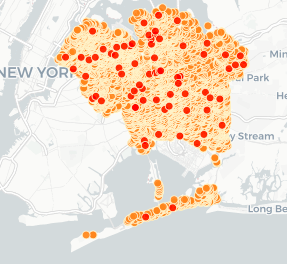
Where the candidates diverged of course was how they said they would focus the resources of the DA’s office to deal with the thousands of crashes in Queens. Nieves and Cabán said they saw a place for a proactive, and victim-focused DA’s office, offering strong visions or sketches of what their offices would do to combat traffic violence.
Beyond merely arresting bad drivers, Nieves said he sees his Vehicular Crimes Unit as one that studies Queens’ streets to find patterns that need fixes beyond arrests. “We're going to have analysts in that Vehicular Crimes Unit, not necessarily tied to the prosecuting purpose of the unit, but actually collecting data, and seeing what type of high risk reckless behavior is being engaged in in Queens,” Nieves said. His office would then issue reports explaining where and how people are injured in collisions, with the ultimate goal of working with street safety advocates to not only push for better laws, but also for better street infrastructure, backed by the power of the DA’s office.
“We can partner with nonprofit and advocacy groups who are very adamant about bringing public safety to traffic safety, and work with them to say, ‘Based on this data, and based on what we're seeing, how would you work to address this issue?’ And once we can come to consensus, we can make recommendations and pursue legislation, either state or locally, to address the issue," Nieves said, adding that he supports "the kind of street redesigns street safety advocates have called for.”
Cabán said she felt a connection between her goal of reducing the footprint of the criminal justice system and making streets safer. “There's common ground there,” she told Streetsblog, adding, as Nieves did, that the DA’s ability to interpret the data coming off Queens’ streets should guide the office towards its safe street efforts.
Beyond focusing the office on collisions that actually cause harm and moving away from what she said she considered low-level crimes of poverty like driving with suspended licenses, Cabán said she wanted to move the DA’s office to do two things: focus more on victims’ services and proactive efforts to improve street safety.
“One of the things that I want to do, which will help with folks that are affected by a vehicular violence, is expanding victims’ and survivors’ services, so that they can get stabilizing services so that they can get back to their lives so that they're not retraumatized, and not going through a really lengthy legal processes without being empowered with the information that they need. That's not happening right now in our in our district attorney's office,” Cabán said.
She never broached the subject of a specialized unit focusing on traffic violence, but Cabán said the DA’s office could be a leader in the street safety movement by taking seriously how prosecutors talk about crashes. “How we talk about accidents, and it really is an opportunity, for the District Attorney's Office to be mindful of language and how powerful language is and start talking about collisions, centering the experiences of survivors, so that we are sort of changing the lens through which we think about injuries and deaths that involve vehicles. The district attorney’s office can be an ally in that so that we can start building safer streets and a culture of better, safer practices.”
As for the getting the DA’s office involved in building those safer streets, Cabán suggested her stated aim to return to Queens over $100 million in federal asset forfeiture money the DA’s office is sitting on could be put towards transit and street safety (pending community approval, which doesn’t always work out).
Cabán’s expansive view of what her office could do with the asset forfeiture money is based on the rules around spending the money, which as pointed out in an Independent Budget Office report on the amount of money in each DA’s office, can’t fill local budget holes. It can go towards “community-based programs,” an option no DA’s offices outside of Manhattan chose and one that Cabán says she would focus the majority of her efforts on. Per the IBO report, the biggest share of this money the Queens DA’s office currently spends goes towards “equipment,” which can mean furniture in law enforcement offices or body armor and firearms.
“That is money that needs to go back into our community, because it was stolen from our communities," she said. "My commitment is not saying, ‘Hey, as district attorney, I'm going to decide how this money gets used,’ but instead saying, ‘I'm going to allow the community to guide what to do with this money.’ I would imagine that there are plenty of folks that would like to see some investment in making our streets safer to prevent some of this [dangerous driving] before it happens.”
Cabán isn’t the only candidate to suggest changing the spending patterns from guns and couches to something more community-centered, but her idea does seem to be the most ambitious. Fellow front-runners Greg Lasak and Melinda Katz have respectively suggested using the money to fund summer camps and cab rides for drunk partygoers on nights known for drunk driving.
Unlike Cabán and Nieves, Lancman, the Council member, has a record as an elected official on which to judge him — and the record is one of attempting to undercut the Right of Way Law and calling car dependence a way of life. Despite his stated goal of using the DA’s office to be a public safety leader that can prod other agencies to take action to improve the streets, Lancman also displayed a windshield perspective in the suggestion that “the vast majority of New Yorkers, at some point get behind the wheel of a car,” and mixed a critique of the city’s street design with the most vulnerable users of those streets.
Speaking of the Right of Way Law, Lancman said enforcement around it “is a very challenging area of the law because all of us who drive are driving in a complicated environment in New York City, where you have streets that are that are poorly designed, fellow drivers that don't always adhere to the rules, and pedestrians and cyclists that don't always adhere to the rules. And we need to separate out those instances where a driver is truly failing to exercise due care, as opposed to being merely negligent, which is not what we typically prosecute people for.”
Lancman did promise an “emphasis” on collisions and street safety in the office, and vowed to hire people “whose special focus and expertise is going to be on street safety,” but he didn’t say whether he would build a separate unit for the issue, telling Streetsblog the office needed a wholesale reorganization.
Nieves, Lancman and Cabán were the only candidates out of seven to agree to an interview with Streetsblog. Queens Borough President Melinda Katz’s campaign sent the following statement:
My life has been shaped by the death of my mother, who was killed by a drunk driver when I was just 3 years old. I grew up knowing the impact that one mistake on the road can have on someone's life and the lives of those close to them. My lived experience has always made street safety a top priority of mine. As Borough President, I've supported projects across Queens to fix dangerous intersections and keep pedestrians safe. As our next District Attorney, I will absolutely prioritize creating safer streets and prosecuting traffic violence.
Betty Lugo did not send a statement as promised, and the campaigns of Mina Malik and Greg Lasak did not respond to a request for comment on the issue. None of those candidates' websites offer information about how the candidate wuld mitigate traffic violence or make streets safer, making it difficult to determine how closely any of the candidates would focus on the issue once in office.
Dave Colon is a reporter from Long Beach, a barrier island off of the coast of Long Island that you can bike to from the city. It’s a real nice ride. He’s previously been the editor of Brokelyn, a reporter at Gothamist, a freelance reporter and delivered freshly baked bread by bike. Dave is on Twitter as @davecolon. Email Dave Colon at dcolon@streetsblog.org
Stay in touch
Sign up for our free newsletter
More from Streetsblog New York City
Adams Backs Lower Speed Limits, Calls Crashes ‘Accidents’
The mayor wants New York City drivers to "slow down," but it's not clear yet how many streets will get lower speed limits.
Wednesday’s Headlines: Trump Posts About Congestion Pricing Edition
Donald Trump comments on congestion pricing — no surprise, he's against it. Plus more news.
DOT Aims to Build First Ave. Tunnel Bike Lane Before September’s UN General Assembly
DOT hopes to have the concrete-protect tunnel bike lane installed this summer, but its exact plans are still in development.
Waste Reforms Could Require Data on Crashes, Dangerous Driving
The proposal affects at least one trucking company with a deadly driving record.
When it Comes to Federal Infrastructure Grants, Size Does Matter
Cities and municipalities with larger budgets and staff are more likely to win competitive federal infrastructure grants, the Urban Institute has found.
